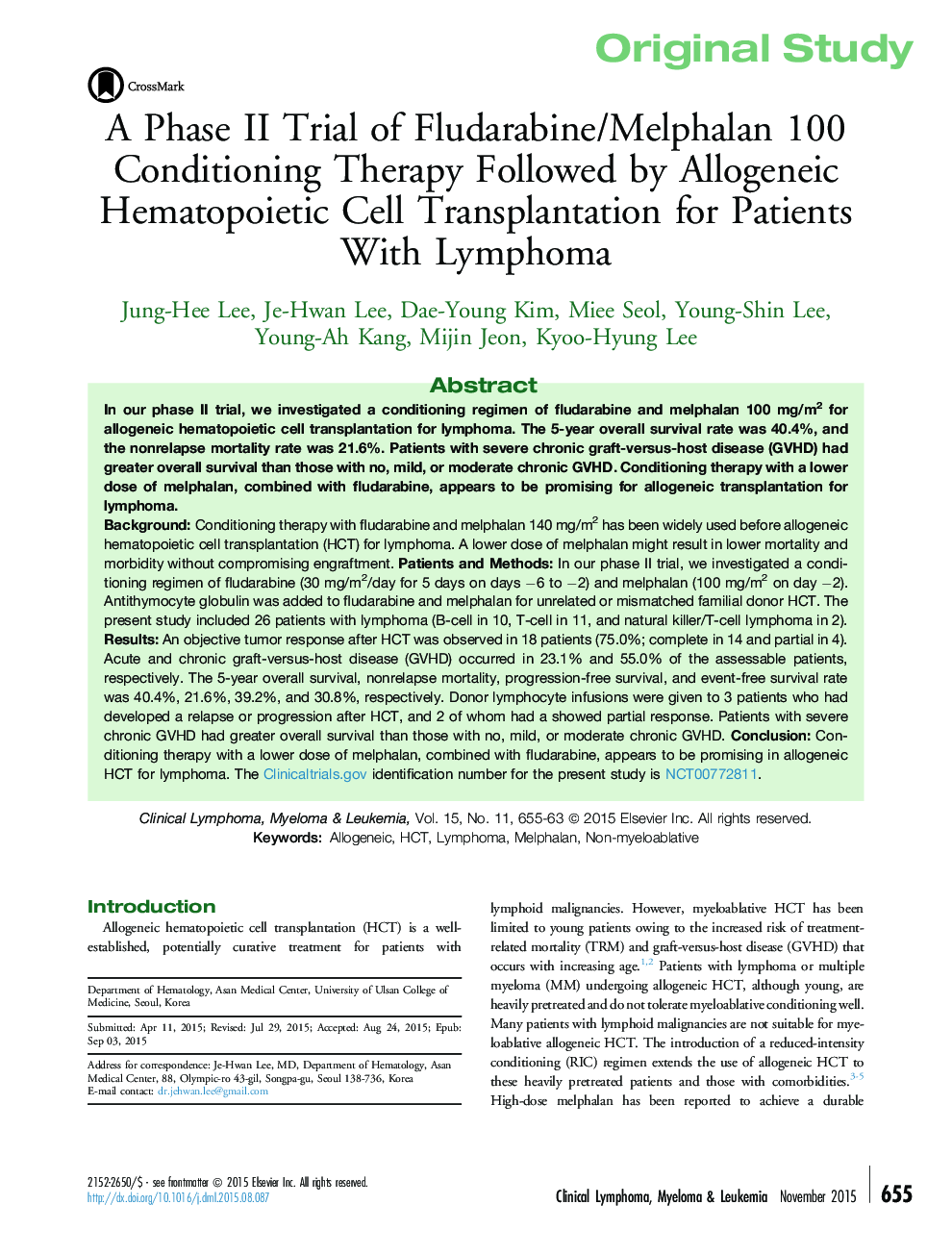| Article ID | Journal | Published Year | Pages | File Type |
|---|---|---|---|---|
| 2754363 | Clinical Lymphoma Myeloma and Leukemia | 2015 | 9 Pages |
BackgroundConditioning therapy with fludarabine and melphalan 140 mg/m2 has been widely used before allogeneic hematopoietic cell transplantation (HCT) for lymphoma. A lower dose of melphalan might result in lower mortality and morbidity without compromising engraftment.Patients and MethodsIn our phase II trial, we investigated a conditioning regimen of fludarabine (30 mg/m2/day for 5 days on days −6 to −2) and melphalan (100 mg/m2 on day −2). Antithymocyte globulin was added to fludarabine and melphalan for unrelated or mismatched familial donor HCT. The present study included 26 patients with lymphoma (B-cell in 10, T-cell in 11, and natural killer/T-cell lymphoma in 2).ResultsAn objective tumor response after HCT was observed in 18 patients (75.0%; complete in 14 and partial in 4). Acute and chronic graft-versus-host disease (GVHD) occurred in 23.1% and 55.0% of the assessable patients, respectively. The 5-year overall survival, nonrelapse mortality, progression-free survival, and event-free survival rate was 40.4%, 21.6%, 39.2%, and 30.8%, respectively. Donor lymphocyte infusions were given to 3 patients who had developed a relapse or progression after HCT, and 2 of whom had a showed partial response. Patients with severe chronic GVHD had greater overall survival than those with no, mild, or moderate chronic GVHD.ConclusionConditioning therapy with a lower dose of melphalan, combined with fludarabine, appears to be promising in allogeneic HCT for lymphoma. The Clinicaltrials.gov identification number for the present study is NCT00772811.
Graphical abstractFigure optionsDownload full-size imageDownload as PowerPoint slide
